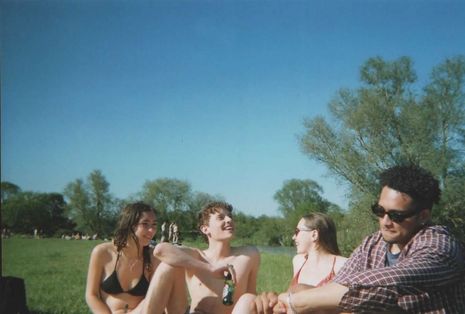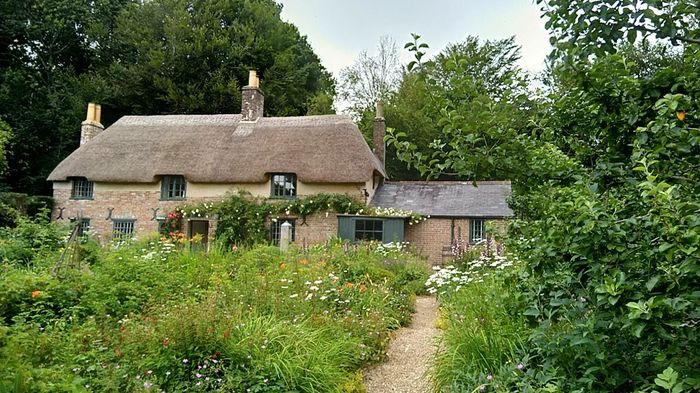On Grantchester, Rupert Brooke and Idleness
Alex Levy reflects on the beauty of summer days spent in Grantchester and the literary irony of the King’s College swimming ban

There is an irony to recent and sad developments which would not be lost on Rupert Brooke, the poet whose renowned good looks and formidable intellect once graced the halls of King’s College, the very institution which has today banned swimming and barbecuing at Grantchester Meadows. Brooke had rooms in the Old Vicarage there and extolled its virtues in his 1912 poem of the same name, a gentle and bucolic masterpiece in praise of this tranquil and unspoiled corner of the Cambridgeshire countryside.
It won’t be hard for students to relate to the image of the poet, slick with sweat and scribbling furiously in the Café des Westens in Berlin, dreaming of this oasis of English charm somewhere over the horizon. And this is a charm which remains just about untinged by the nationalistic connotations of Brooke’s war poetry — representing a kind of harmless, pastoral patriotism which results in countless unforgettable lines. The flowers which adorn the hedges are beautiful in their rural disorder, ‘An English unofficial rose’ which blows unkempt, and even the celestial and classical references are cloaked in comforting, parochial guise, ‘A slippered Hesper’ shuffling her way across the night sky.
“Grantchester is a bolthole of escapism attached to a city which breathes work from every ivy-clad court”
Grantchester seems to represent an escape for the poet, a realm of familiarity and certainty, where the burbling river chatters on out of sight and one can disappear into the grass and forget ‘lies, and truths, and pain’. His longing for this place and his conviction in its powerful allure are embodied in the reverential refrain, ‘In Grantchester, in Grantchester…’ which beats like a drum through his verse, calling him home from across the seas. He hints that ‘clever modern men’ may have seen the classics come to life on the river banks, but quickly disavows himself of such pretentions (‘But these are things I do not know’), lovingly calling the Cam at Grantchester a ‘yet unacademic stream’.
As a languages student I was drawn to the poem for its beautiful verse interspersed with German phrases, but as the year wore on what stuck in my head like the pole of a luckless punter was its relevance to the experiences of me and my friends. On weekends and hot summer days, exam-harried students leave books behind and bike down to Grantchester to drowse and drink away an afternoon together, jumping literally and figuratively into that unacademic stream. It might not be the romantic wonderland of Brooke’s heat-stroked and homesick imagination, but the smell of barbecues and cigarettes and the noise of music floating across the meadows calls to mind some of my happiest moments of a very strange first year in an often-disillusioning place. It is a bolthole of escapism attached to a city which breathes work from every ivy-clad court; is this stifling atmosphere now reaching Grantchester? Will it be King’s porters, rather than ‘elm clumps’, which stand ‘guardians of that holy land?’
“Contrary to what the world tells us there is worth in simply being rather than doing”
When I first thought of writing an article about Grantchester, I wanted it to be an appeal to idleness in a place which seems to actively discourage it. In Robert Louis Stevenson’s essay ‘An Apology for Idlers’, he describes perfectly how such an article would be received: ‘It is not hard to understand his resentment, when he perceives cool persons in the meadows by the wayside, lying with a handkerchief over their ears and a glass at their elbow’. I did not want to be this figure with a handkerchief over my ears and I know just how hard it can be to leave ‘the bubble’ behind, but Grantchester for me and for others came to represent this sense of escapism and reinforced the value not of bursting the bubble, but being happy doing nothing within it. In a term with mitigated exams after a bizarre and exhausting year, I knew I would regret not taking advantage of the time on our hands, and the proximity to such beautiful spaces — and unlike Brooke, we need not ‘pack, and take a train’ to get there.
There will probably not be any great restorative literary reverie when you get to Grantchester, but there could be a reminder that life goes on outside the library, that deadlines can’t pursue you down the Backs, and that contrary to what the world tells us there is worth in simply being rather than doing. As far as the King’s ban goes, you may no longer officially be able to cook sausages or bathe in those scabies-free waters, but:
‘I only know that you may lie
Day long and watch the Cambridge sky,
And, flower-lulled in sleepy grass,
Hear the cool lapse of hours pass,
Until the centuries blend and blur
In Grantchester, in Grantchester. . . .’
— Rupert Brooke
The Old Vicarage, Grantchester
Disclaimer: this article was written when the ban was first announced, before it was reviewed.
 Features / Should I stay or should I go? Cambridge students and alumni reflect on how their memories stay with them15 December 2025
Features / Should I stay or should I go? Cambridge students and alumni reflect on how their memories stay with them15 December 2025 News / Dons warn PM about Vet School closure16 December 2025
News / Dons warn PM about Vet School closure16 December 2025 News / Cambridge study finds students learn better with notes than AI13 December 2025
News / Cambridge study finds students learn better with notes than AI13 December 2025 News / SU reluctantly registers controversial women’s soc18 December 2025
News / SU reluctantly registers controversial women’s soc18 December 2025 News / News In Brief: Michaelmas marriages, monogamous mammals, and messaging manipulation15 December 2025
News / News In Brief: Michaelmas marriages, monogamous mammals, and messaging manipulation15 December 2025









